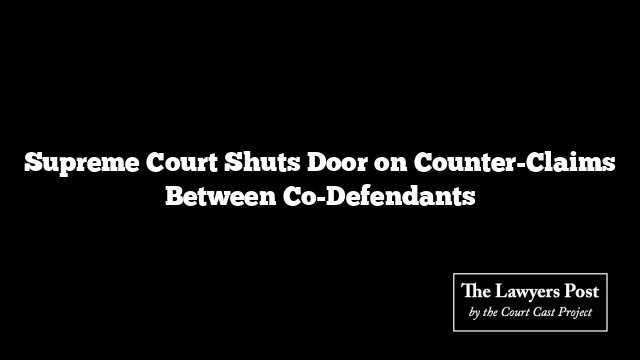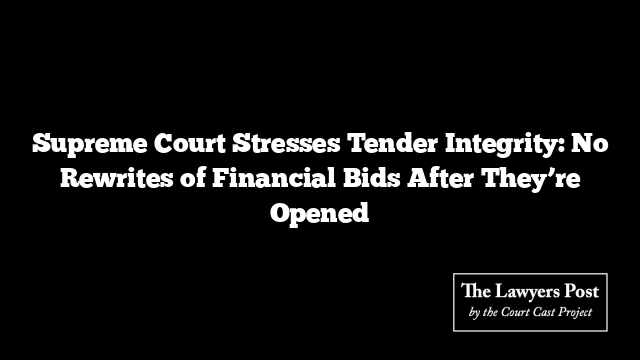The Supreme Court has drawn a clear boundary around the use of counter-claims under Order VIII Rule 6-A of the Civil Procedure Code: they can only be aimed at the plaintiff, not at fellow defendants.
This ruling overturns a Gujarat High Court order that had allowed one defendant to pitch a counter-claim against another. A bench of Justice P.S. Narasimha and Justice Joymalya Bagchi sided with the plaintiff who had challenged that decision.
The dispute began when the plaintiff sought a declaration and injunction against her sister-in-law, targeting a 2011 sale agreement made in favor of another defendant. After the sister-in-law passed away, the Nazir of the City Civil Court, Ahmedabad, was brought in as her substitute.
Nearly a decade later, in 2021, the second defendant attempted to amend his written statement, introducing a counter-claim demanding specific performance of the 2011 agreement and even seeking partition of the disputed property. The trial court rejected this, citing both limitation and the fundamental rule that counter-claims cannot be fired solely at co-defendants.
But the High Court took a different view in 2023, reasoning that once the Nazir stepped in, such a claim became maintainable. The plaintiff then knocked on the doors of the apex court.
The Supreme Court was unequivocal: relying on Rohit Singh v. State of Bihar (2006), it reiterated that counter-claims directed only against co-defendants are impermissible. The judgment stressed that defendant no. 2’s bid to enforce the 2011 agreement through a counter-claim against the Nazir was legally untenable since the plaintiff was not the target of the relief sought.
The Court also faulted the timing—pointing to Ashok Kumar Kalra v. Wing CDR Surendra Agnihotri (2020)—and underlined that counter-claims must come before issues are framed. Waiting nine years into the litigation, and two years after issues were settled, was simply too late.
Concluding that the High Court had erred in greenlighting such a move, the Supreme Court restored the trial court’s rejection and allowed the appeal.





